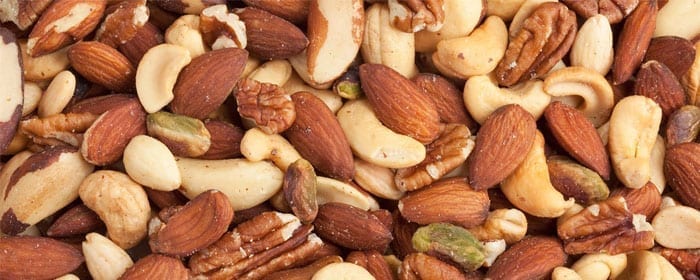
by admin | Apr 17, 2018 | Alzheimer’s Disease, Health Awareness
Whether you have been recently diagnosed with Alzheimer’s disease or you’re caring for someone with the condition, maintaining a high quality of life often means adjusting daily routines. While the precise types of adjustments needed will vary at different points in time, one way to manage stressors is to find coping strategies that effectively alleviate each challenge as it arises. Here, we explore some daily living tips you or your family members may find helpful.
Create & Follow a Daily Routine
Sticking to a routine can help ensure daily tasks get accomplished. It may help to follow a written plan each day. Also, many Alzheimer’s patients find that important appointments and other key tasks are best scheduled in the morning, when alertness is at its peak.
Focus on One Task at a Time
The Mayo Clinic explains that reducing distractions can help individuals improve their focus. Instead of doing housework while talking on the phone, for instance, devoting attention to one activity at a time may make it easier to concentrate.
Connect with Others
Socializing doesn’t just improve mood; it can also support mental health. According to a study conducted by the University of Michigan, even just ten minutes of social interaction can boost cognitive performance. Make a point to share meals with others, see friends, or stay active in the community to get plenty of interaction with others.
Find a Support System
Whether it’s church, a group that meets in person, or an online, there are many outlets for people living with Alzheimer’s to go for support. Family, friends, and even pets can also be sources of strength on particularly challenging days.
Recognize Triggers
Pinpoint any stressors that trigger anxiety or other negative feelings and find ways to actively avoid them. For instance, if feeling rushed leads to frustration, make sure others know that you need more time.
Keep Your Doctor’s Appointments
Attending doctor’s appointments can be difficult with transportation challenges, but according to the Alzheimer’s Association, doctors play a critical role in helping both patients and their families. Thus, it’s important to maintain scheduled visits whenever possible. Physicians and specialists can help patients select optimal medication for specific symptoms, recommend tailored disease management strategies, and provide treatment for any coexisting conditions. They may also have information about local clinical studies, which are becoming more prevalent as a result of accelerating research progress.

by admin | Feb 13, 2018 | Health Awareness
Various studies have shown heart-related benefits of nuts. Including at least 20-30 grams of nuts daily decreases the risk of heart disease by almost 30%. Everyday Health provides a few nuts that are beneficial in reducing the risk of heart disease and helping to maintain a heart-healthy diet:
Almonds can help lower cholesterol and body fat.
Including almonds in your diet can lower the LDL cholesterol levels in your blood that can lead to a heart attack. Studies also show that almonds can also reduce the risk of diabetes and improve the sensitivity of insulin. Almonds can also assist with weight loss and lowering body inflammation.
The truth on peanuts.
Peanuts have generally been thought to be the least healthy of the nuts. However, including peanuts, as well as peanut butter, in your daily diet can lower cholesterol and overall risk of diabetes. It is also a good alternative source of protein.
Pistachios help lower blood pressure caused by stress.
Pistachios can be beneficial for healthy heart management. They can help lower LDL cholesterol levels and risk of diabetes while also improving the heart rate response under stress. It is suggested that eating 1.5 oz. per day of pistachios may reduce the risk of heart disease and prevention of hypertension.
Walnuts keep the arteries clear.
Walnuts contain almost 47% of polyunsaturated fats which are known as “good fats”. Unlike most nuts, walnuts also have a specific kind of polyunsaturated fatty acid called the alpha-linolenic acid which is an anti-inflammatory agent that helps to reduce the buildup of plaque in the coronary arteries. Consuming walnuts can also help improve cholesterol levels as well as small vessel and artery function.
Can you eat too many nuts?
Yes, and you want to avoid overconsumption of nuts by eating them in moderation. They are a good source of energy and protein, but too many and in high amounts can lead to gaining weight. Be aware of any nut allergies in your family history as to avoid any allergic reactions.

by admin | Feb 12, 2018 | Health Awareness
February is officially known as Heart Health Month. Heart disease is the cause of one out of three deaths and the number one killer globally, but it can be preventable by making a few changes in both exercise, diet, and regular checkups. Everyday Health has a few tips to keep your heart healthy:
Monitor and maintain your blood pressure: Hypertension is a condition often ignored and left untreated by many but it is a big risk factor when it comes to heart disease. Monitor your blood pressure regularly and keep taking the medication. Follow up with your doctor regularly too.
Avoid smoking: Smoking increases the chances of heart disease by a factor of two to four. Heart disease is the leading cause of death for those that smoke compared to lung disease.
Avoid sugar: Studies show that Americans consume sugar more than an average person and it is a big contributor to the development of heart diseases. To reduce your sugar intake try replacing sodas with water or herb tea, choose fruits instead of baked goods or candies, and avoid processed foods as much as possible.
Eat healthily: Eat nuts, fruits, and vegetables as much as possible along with a good amount of whole grains. Try to have a weekly serving of fish, it reduces the risk of coronary artery disease and is highly rich in omega-3 fatty acids. Fish oil supplementation can also help protect against cardiac risks. Garlic is also known to be highly beneficial for heart disease. It lowers the cholesterol, maintains the blood pressure and decreases the number of platelets in blood preventing it from clotting.
Stay active: An inactive lifestyle increases the risk of heart disease. Regular exercise can help reduce this risk. Some studies have found that incorporating brisk walking in your daily routine reduces the three main causes of cardiovascular diseases, namely blood cholesterol, diabetes, and hypertension.
Some sun exposure is beneficial: Ultraviolet rays from the sunlight triggers the production of vitamin D in the body which lowers blood pressure. A daily exposure of ten to fifteen minutes of sunlight can help maintain proper levels of vitamin D.
Controlling stress levels: Stress can trigger the body to release hormones like cortisol and adrenaline that increase heart rate and blood pressure. These hormones can also make blood platelets to become stickier which can then cause blood clots and high blood glucose. This can lead to further risks of hypertension, diabetes, and atherosclerosis.
Getting enough sleep: A study review reveals that sleep deprivation can lead to heart risks including hypertension, coronary heart disease, and diabetes.
Maintain a healthy weight: Being overweight can lead to health issues including heart disease, high blood pressure, diabetes, and stroke. Even losing a few pounds will help provide cardiovascular benefits as you work toward a healthy weight goal. Talk to your physician about safe and monitored weight loss management.
Have some hibiscus or hawthorn tea: These teas offer a healthier option in place of sodas or sugary juices. Hawthorn tea has been proven to be effective for multiple heart issues and hibiscus helps lower blood pressure and cholesterol.

by admin | Jan 23, 2018 | Health Awareness
You can have success losing weight and still enjoy going out to eat. According to the data obtained from various studies, eating outside the home a few times per week can lead to weight gain. However, the good news is that you have many options that can help you enjoy having a night out and enjoying the luxury of dining out at your favorite restaurant.
Below are some tips and strategies you can use to enjoy eating out successfully while on your weight loss journey.
Know What’s on the Menu Before You Reach the Restaurant
You can have a happy dining out experience when you have prepared in advance. Look at the menus online before you go to the restaurant, plan in advance what option you have to order that will fit within your diet plan. If you see there is a dessert you might be tempted to try, plan in advance and cut down on other parts of your meal to lower the calories.
Plan to go not too hungry. Try having some almonds or small healthy snack prior to going to avoid over indulging or being too hungry.
Avoid the Bread Basket and the Add Ons
One way to avoid having unwanted pre-dinner foods, request the server to bring the bread, chips and butter along with your entrees. This will remove the temptation to eat too many chips or have too much bread and butter prior to the meal. Having the meal after the bread or chips leads to the consumption too many calories. Having the bread or chips with dinner will allow you to focus more on the dinner and have just a little bread. Or you can request to have no bread or chips and avoid the temptation all together.
If you want to have an appetizer, opt for something healthy like fresh vegetable salads, healthy soups or seared tuna. Avoid anything fried and creamy.
Don’t Forget About Liquid Calories
Choose water as your beverage but if you choose a soda or tea, be aware of the calories that will be added to your overall meal.
Beware of Sneaky Calories on Salads and Veggies
If not prepared properly, vegetables and salads can also be a source of extra calories that are not needed. Sometimes salads are dressed in oils, garnished with cheese, dry fruits, or croutons. You can always get your own customized salad that is healthier.
Order dressing on the side to avoid extra calories. If you are thinking of ordering vegetables then ask beforehand how they are prepared and ask to use as little oil and butter as possible.
Go for Light Entrées
When ordering the main course, opt for something fresh and avoid fried choices. Although stir-fry dishes can be a better option at home, at a restaurant you cannot control how much oil is used. A nice tip is to choose three best dishes you like out of the menu and then ask the staff to give you the healthiest option out of them based on preparation and calories.
Don’t finish your plate. Restaurant portions can tend to be larger in size and boxing up half will help cut down on calories.
Don’t Let your Sweet Tooth Make Decisions
If you want to have something sweet, go for the lighter options. Possibly the portion size is ideal to split with someone or you can save half and take home.
Go for Quality Over Quantity
Having a quality experience rather than a large indulging experience will have you feeling successful and satisfied when leaving the restaurant and not guilty after your hard work for that week. Enjoying a meal outside can be positive when on a healthy weight journey when you follow these helpful tips.

by admin | Jan 22, 2018 | Health Awareness
Whether you are still on your weight loss journey or have successfully reached your healthy weight, it is important to know what you can do to maintain the healthy weight. Below are helpful tips from those who have successfully lost weight and maintained their goal weight.
Watch Your Diet
Follow a healthy eating plan and keep up the positive eating habits. Studies have shown that those who lost weight and maintained for almost a year continued to eat a diet that was low in calories compared to their diet prior to losing weight. When you feel yourself falling off course, try incorporating the same tools and habits you were having success with. For example, your food journal will not only help you regain focus but going back to meals you ate when losing weight may help. Life can never be planned so expect some setbacks but don’t get discouraged.
Keep the eating patterns well maintained and consistent, plan ahead for vacations, special occasions and even weekends. If you have a plan then it is more possible for you to have healthy foods included in case your routine changes.
Don’t Skip Breakfast
Those who have lost weight found breakfast was key. Jump start your metabolism for the day, avoid becoming too hungry or overeating later in the day.
Stay Active
Make sure to stay physically active. People who have maintained their weight mostly engage in about 60-90 minutes of physical activity on a regular basis while also keeping an eye on the calorie intake. Can’t commit to an hour of physical activity at one time? Adjust your activities to 20-30 minutes of exercise a couple times a day. Cardio is more effective when done in 30+ min increments.
Monitor the Weight
Check your weight regularly. It is a good idea to keep track of your weight loss so you can plan ahead accordingly and make the necessary adjustments in your activity and diet. This is helpful to keep your motivation and know if there is a setback, you will be able to take back control be able to get back on track successfully.
Get Support from Others
It is helpful for family and friends to continue to support you. Having a friend or a partner who is also trying to lose weight can help you stay motivated and actively focused.

by admin | Jan 19, 2018 | Health Awareness
When considering your eating habits, you may be able to determine what challenges you may be experiencing in losing weight with your daily diet. Most of these habits are developed early in the childhood but it is still never too late to make the changes needed to reach a healthy weight.
Making rapid and big changes to your eating habits may help in the short term to lose some weight, but it is not the most healthy or realistic long-term. To improve and change your eating habits for longer success and healthier management will need a thoughtful approach. This includes reflection of your current eating habits and replacing them with healthier choices and ways to keep maintaining those changes.
The process to improve your eating habits depends on three things: Reflect, Replace and Reinforce.
Reflect:
Initially and continuing into your healthier lifestyle, you will want to make a daily food journal of each day’s eating habits and water consumption as well as the times you are eating. This will help you study your habits closely. Use this diary as a guide to see where, what, and when you can make healthier choices. It is also good to note down how you were feeling when you decided to eat a specific something even when you weren’t hungry. Were you tired and stressed out?
By keeping a record of your eating habits, this helps you to take more control to overcome them. Some common habits that lead to weight gain are:
- Eating quickly
- Eating when not hungry
- Always finishing the plate
- Eating desserts
- Skipping meals
Common triggers to eating when not hungry are:
- Watching television while sitting at home
- Seeing your favorite snacks in the cabinet
- During a stressful situation or meeting
- Passing by your favorite drive-through in the morning
- Somebody offering a dish they made for you
- Feeling tired of bored and thinking food might help you feel better
Start looking at the unhealthy habits you have highlighted so far, observe the triggers that push you to develop such habits, and select some that you’d like to improve on first. Be proud of yourself for making even the smallest changes. You might also notice you have some good eating habits, encourage yourself and recognize the good ones and keep going.
Replace:
Next is incorporating new healthy changes. Things you can ask yourself for example are, “What can I do to avoid this habit or situation?” or “What can I do as a healthier option?”. Perhaps removing unhealthy snacks from your cabinets or staying busy to be distracted from eating when bored.
Below are some healthy eating habits that you can include in your routine:
- Eat slowly instead of eating quickly
- Eat only when hungry and stop when full
- Plan the meals ahead of time to make sure you have a balanced healthy meal
- If you find yourself tempted to eat when bored or stressed out, try distracting yourself by going out for a walk or call up a friend
Reinforce:
Keep your food journal as a daily reminder to stay focused. If you find yourself having that unhealthy choice, reflect on how to avoid that choice next time and reinforce for next time. Changes take effort and you will have moments that you may run off course, but don’t let it discourage you. Habits are hard to break and for new ones to develop, so be patient with yourself as you transition into your new daily regimen and be proud of the success that you have!







 St. Petersburg, Florida
St. Petersburg, Florida
